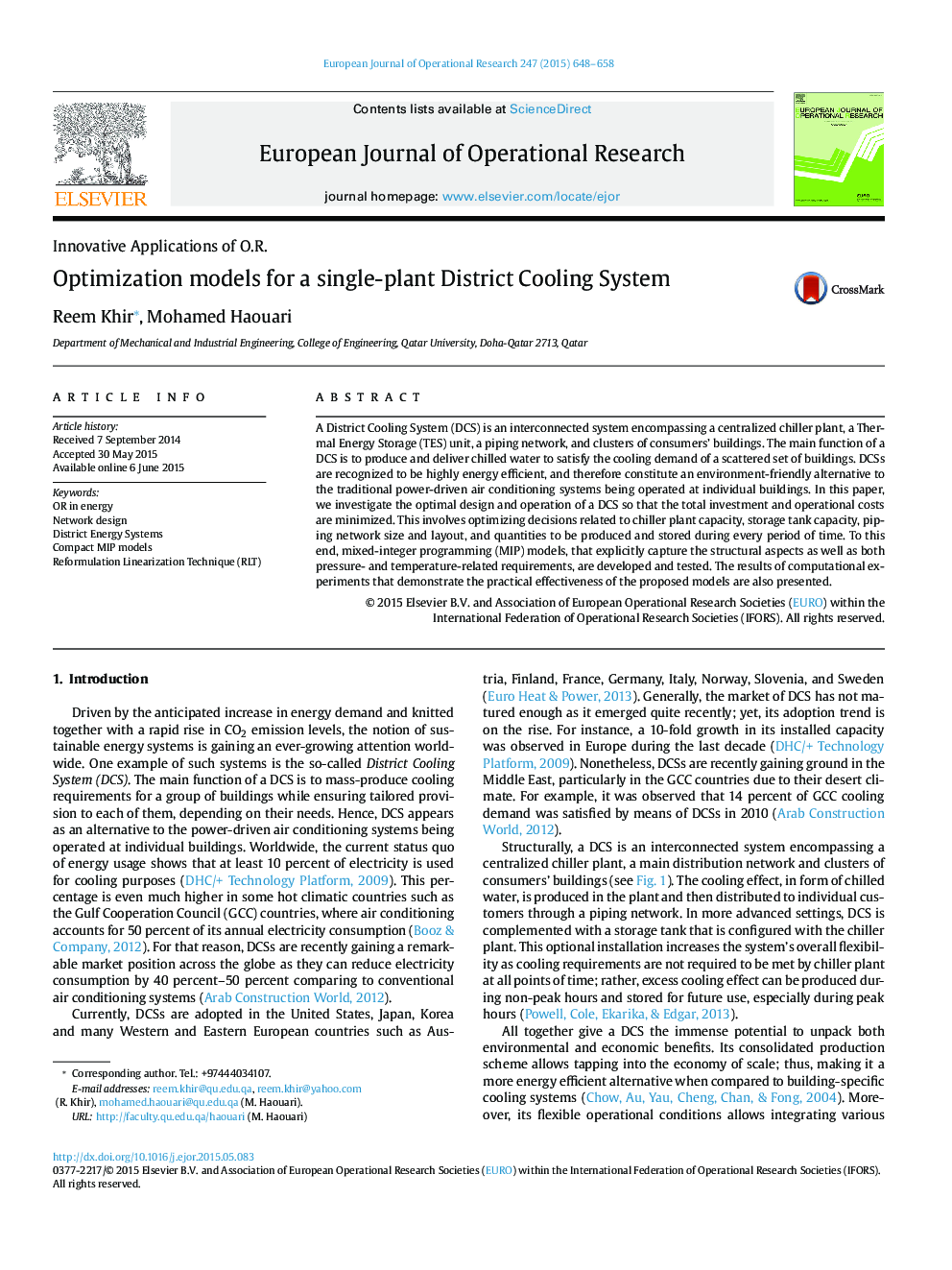| Article ID | Journal | Published Year | Pages | File Type |
|---|---|---|---|---|
| 6896406 | European Journal of Operational Research | 2015 | 11 Pages |
Abstract
A District Cooling System (DCS) is an interconnected system encompassing a centralized chiller plant, a Thermal Energy Storage (TES) unit, a piping network, and clusters of consumers' buildings. The main function of a DCS is to produce and deliver chilled water to satisfy the cooling demand of a scattered set of buildings. DCSs are recognized to be highly energy efficient, and therefore constitute an environment-friendly alternative to the traditional power-driven air conditioning systems being operated at individual buildings. In this paper, we investigate the optimal design and operation of a DCS so that the total investment and operational costs are minimized. This involves optimizing decisions related to chiller plant capacity, storage tank capacity, piping network size and layout, and quantities to be produced and stored during every period of time. To this end, mixed-integer programming (MIP) models, that explicitly capture the structural aspects as well as both pressure- and temperature-related requirements, are developed and tested. The results of computational experiments that demonstrate the practical effectiveness of the proposed models are also presented.
Related Topics
Physical Sciences and Engineering
Computer Science
Computer Science (General)
Authors
Reem Khir, Mohamed Haouari,
